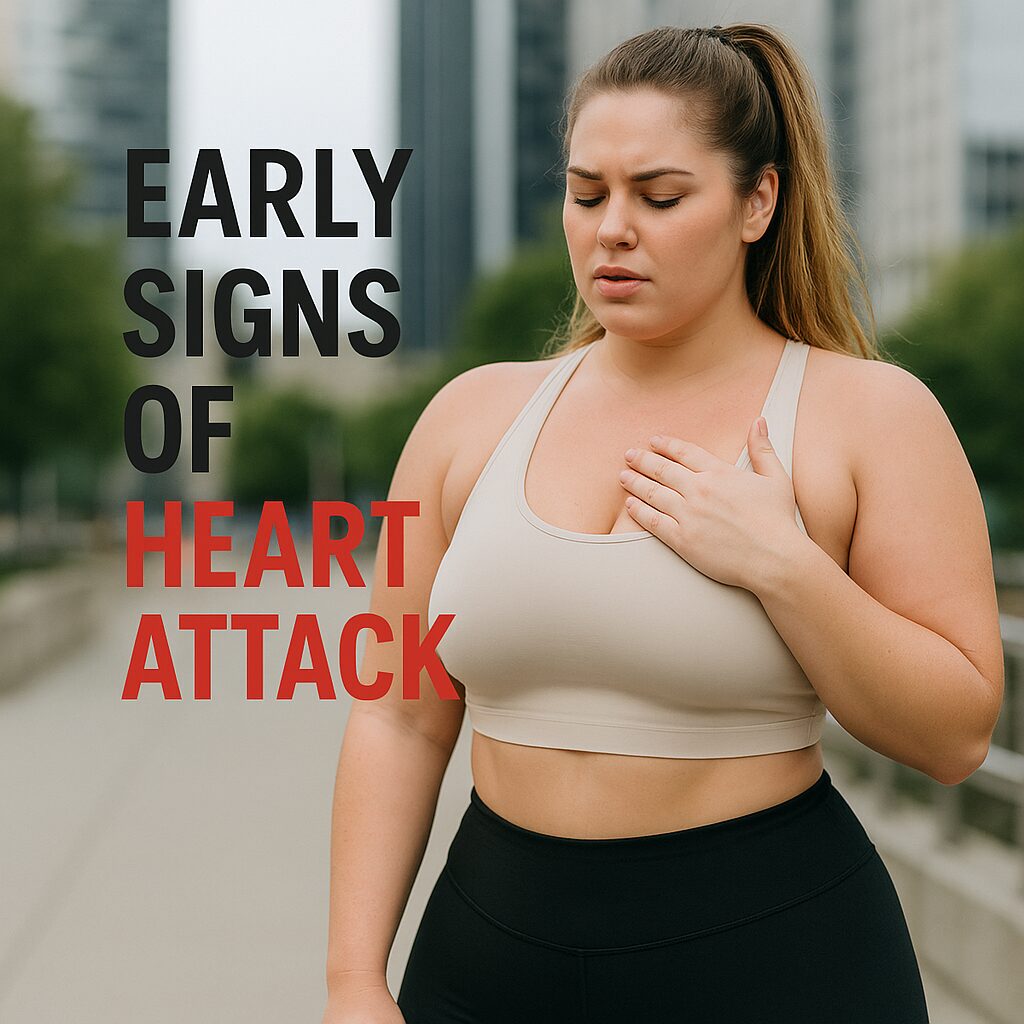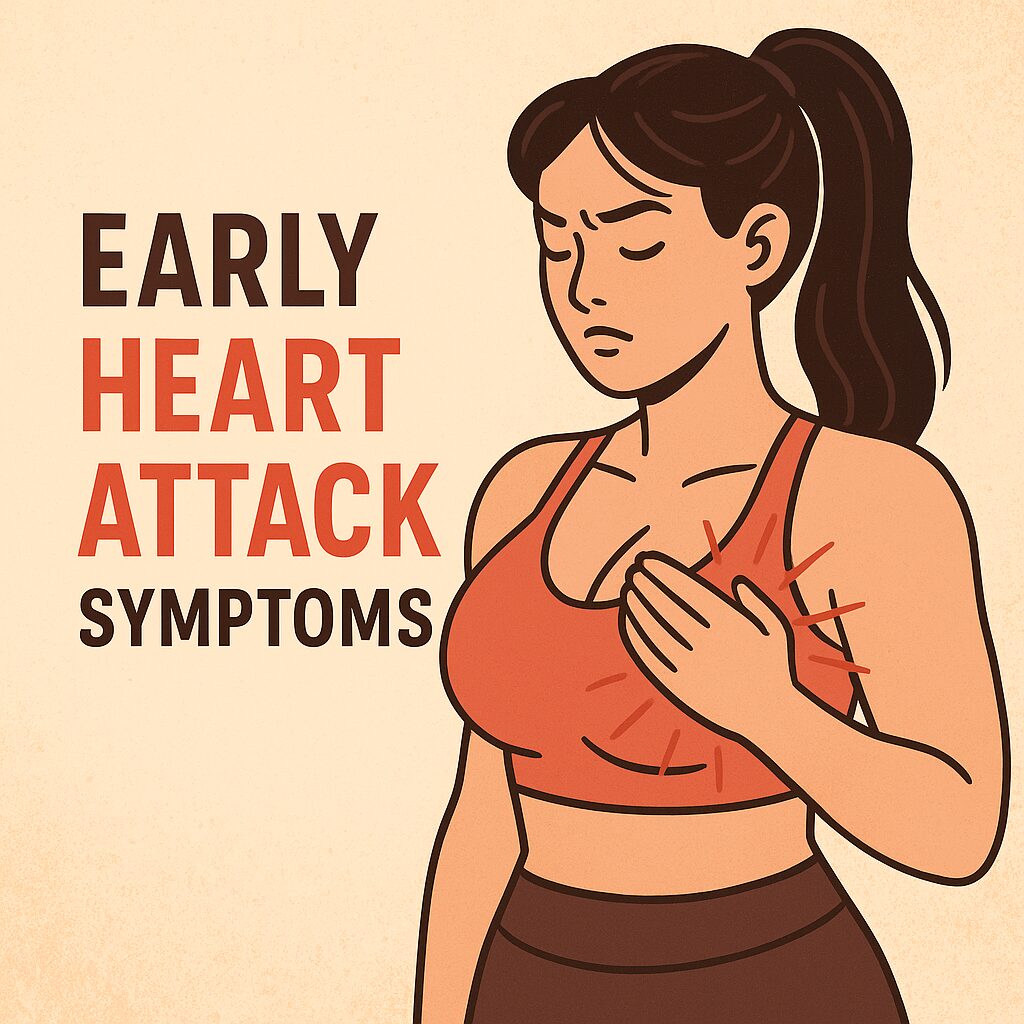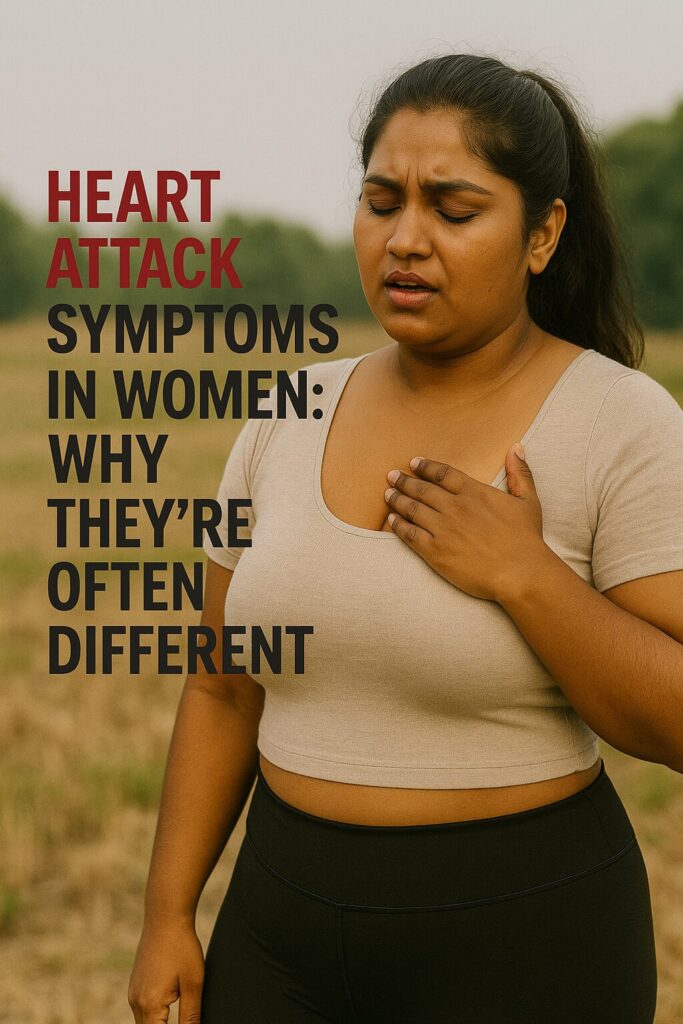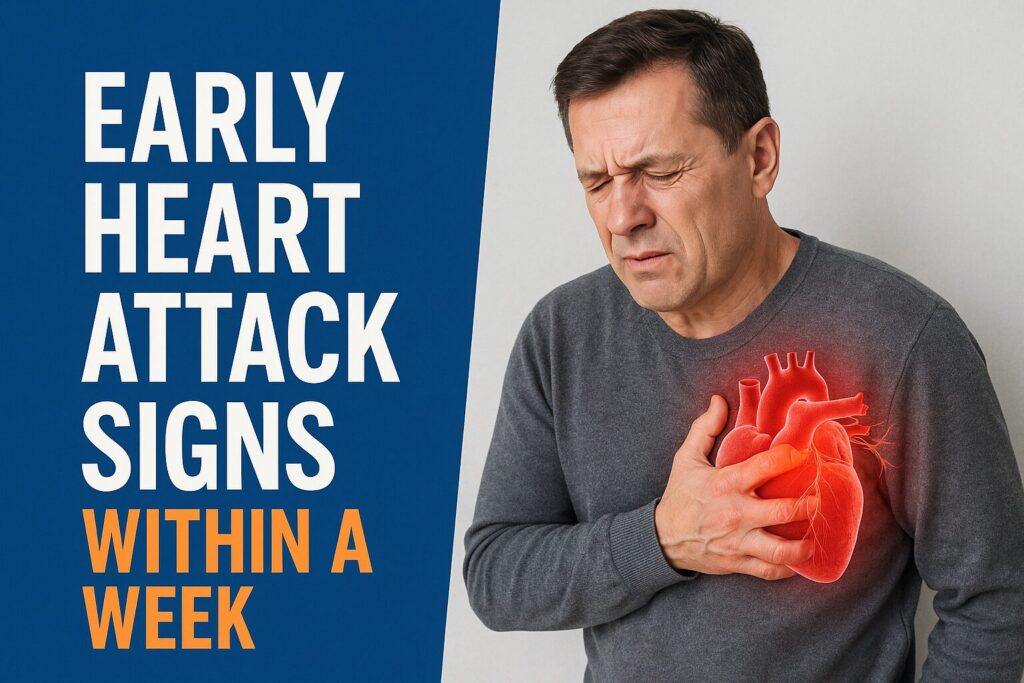Early signs of heart attack, such as dizziness, extreme fatigue, and chest discomfort, often go unnoticed. Recognizing these symptoms early can save lives. In this article, we dive into the key warning signals, expert advice, and actionable steps to help you take control of your heart health before it’s too late.

Heart disease is the leading cause of death in the Globally (United states and India), with heart attacks accounting for a significant portion of these fatalities. Yet, heart attacks rarely strike without warning. Your body often gives subtle, early signs that could save your life if recognized in time. This guide elaborates on these symptoms, offering actionable advice, medical data, case studies, and insights from top U.S. cardiologists.
The Unspoken Truth About Heart Attacks
Did you know that over 50% of heart attack survivors experienced early symptoms weeks before the event? Unfortunately, most people dismiss these signs as minor inconveniences or unrelated issues. This negligence can cost lives. Understanding these symptoms can empower you to act early and prevent fatal outcomes.
What your body tells you about your heart health in advance
The number of heart attack cases in India is increasing day by day.
Now in the year 2025, many deaths have happened due to heart attack, below is their details:
- In 2025, a groom died of a heart attack on his wedding day.
- The bride’s sister got a heart attack while dancing at the wedding and died.
- Young children are dying of heart attacks in India.
Recognizing Early Signs of Heart Attack
Major early symptoms of a heart attack/Recognizing the early symptoms of a heart attack:
- Nausea and Dizziness
Many heart attack patients report nausea or dizziness days or even weeks before the attack. These symptoms often stem from poor blood circulation to the brain, a result of heart inefficiency. - Extreme Fatigue
Heart-related fatigue feels unusual and doesn’t go away with rest. It’s your heart working overtime to compensate for reduced blood flow.- Expert Insight: Dr. Susan Martinez, a prominent cardiologist, explains: “Extreme, unexplained fatigue is a red flag. If you’re sleeping well but still feel drained daily, consult a doctor.”
- Chest Discomfort or Tightness
Chest pain or pressure is a hallmark symptom of an impending heart attack. While often mistaken for indigestion, it’s crucial to note its persistence.- Fact: The American Heart Association states that nearly 70% of heart attack survivors recall experiencing chest discomfort beforehand.
- Shortness of Breath
Breathing difficulty during regular activities could indicate heart issues. This symptom often accompanies fatigue or chest discomfort. - Headaches
Persistent or worsening headaches can signal oxygen deprivation caused by restricted blood flow. While headaches alone may not seem alarming, their combination with other symptoms warrants immediate attention.
How To Address Early Signs Of Heart Attack Symptoms And What Do These Symptoms Mean
These symptoms result from restricted blood flow to the heart or other vital organs. When arteries become clogged with plaque or experience spasms, they hinder oxygen and nutrient delivery, causing various physical discomforts.
Medical Advice on Early Sign Of Heart Attack Warning/Risk Factors
Certain conditions increase your chances of developing these symptoms:
- High blood pressure
- Diabetes
- High cholesterol
- Obesity
- Smoking or excessive alcohol consumption
Real-Life Stories: Acting on Early Warnings Saves Lives
Early Signs Of Heart Attack
- Case Study 1:
A 58-year-old man in California felt tired and lightheaded for weeks. His wife insisted on a checkup, which revealed severe coronary artery disease. A triple bypass surgery saved his life. - Case Study 2:
An active 36-year-old woman in Florida experienced occasional chest tightness and fatigue. Doctors discovered a minor blockage during a routine examination. Timely medication and lifestyle changes prevented a major cardiac event.
Medical Advice from Leading Cardiologists
Early Signs Of Heart Attack
Dr. Michael Blake, a New York-based cardiologist, emphasizes:
“The body often whispers before it screams. Minor symptoms like dizziness or fatigue can precede a life-threatening event. Early diagnosis is critical.”
Dr. Angela Rowe adds:
“Women often experience atypical symptoms, like back pain or jaw discomfort. Knowing these variations can save lives.”
How to Respond to Early Symptoms
Early Signs Of Heart Attack
- Consult a Doctor Immediately
Don’t ignore signs like dizziness, fatigue, or chest tightness. A routine ECG or stress test can identify hidden risks. - Adopt Heart-Healthy Habits
- Eat a balanced diet low in saturated fats and cholesterol (Like: fruits, vegetables, whole grains, lean proteins (like fish, poultry, and beans), and healthy fats like those found in avocados and nuts. Limit fatty meats, full-fat dairy, and sugary drinks.
- Engage in 30 minutes of moderate exercise daily.
- Avoid smoking and excessive alcohol consumption.
- Monitor Your Health Regularly
Use wearable devices (Like Smart Watch/ Track Bands) to track heart rate and oxygen levels. Keep a diary of any unusual symptoms and share them with your doctor.
Factors That Influence Heart Attack Risk
- Age
Risk increases significantly after age 45 for men and 55 for women. - Genetics
A family history of heart disease raises your likelihood of experiencing similar issues. - Lifestyle Choices
Sedentary behavior, poor diet, and chronic stress contribute significantly to heart disease.
Comparing Symptoms in Men v/s Women
Men typically experience chest pain and pressure, while women often report nausea, shortness of breath, and back pain.
Your Heart Deserves Attention
- Feeling Unusual Symptoms?
Don’t wait, schedule a cardiologist visit ASAP (As Soon As Possible). - Educate Your Loved Ones:
Share this article to spread awareness. - Join Our Newsletter:
Receive and follow our tips for a heart-healthy lifestyle.
Conclusion
Your body is your most reliable alarm system. Paying attention to early heart attack symptoms can save your life and the lives of your loved ones. If you or someone you know is experiencing the signs mentioned above, don’t delay seeking medical help.
Please Note:
We try to provide complete information from our side, but we do not make any kind of claim. Please follow any exercise or supplement only after consulting your health doctor or exercise coach.
Sometimes we also use of AI to cross-check our information, but the information given by AI is checked and corrected by the Fit Hut team before writing it on fithut.in and before delivering it to you.






Pingback: Early Heart Attack Symptoms: What Your Body Tells You Weeks in Advance - fithut.in